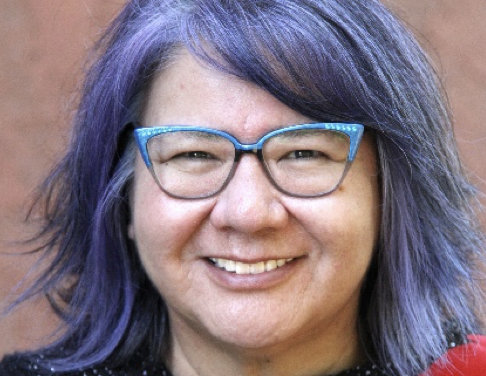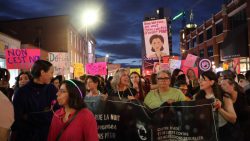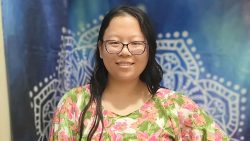RoseAnne Archibald will lead the Assembly of First Nations as the first woman to hold the post of National Chief in the organization’s 50-year history.
“Today is a victory and you can tell all the women in your life that the glass ceiling has broken,” said a jubilant Archibald in her victory speech. .
“I thank all of the women who punched that ceiling before me and made it crack,” she said.
Earlier in her speech, she said she believes change is happening noting Mary Simon’s recent appointment as Canada’s first Indigenous governor general.
Archibald, who belongs to Taykwa Tagamou Nation, has been involved in First Nations politics for decades.
She is also used to breaking glass ceilings. In 1990, at 23, she was the first woman and the youngest Chief of Taykwa Tagamou Nation.
She also became the first woman and youngest Deputy Grand Chief for the Nishnawbe-Aski Nation (NAN), as well as the first female and youngest Grand Chief for the Mushkegowuk Council.
And in 2018, she became the first woman to be elected as Ontario’s regional chief.
Ironically, according to media reports, Archibald has twice supported resolutions alleging misconduct within the AFN executive. And the AFN, in turn, has investigated complaints of harassment against Archibald.
As a multi-disciplinary artist, Archibald, who holds a master’s degree in humanities, focuses on political art, landscape and portrait photography, music and as well as documentary short films.
“We all want our children to grow up proud and surrounded by love, culture, ceremony and language in safe and vibrant communities.”
RoseAnne Archibald, new head of the assembly of First Nations
Archibald’s win came after five rounds of voting over two days with her last contender Reginald Bellerose, long-time Muskowekwan First Nation chief in Saskatchewan, withdrawing from the contest.
Seven candidates entered the race with only Archibald and Bellerose making to the fourth round.
Even after the fifth round of voting neither candidate could reach the 60 per cent majority required to be elected as the national chief.
But Archibald led both the fourth and fifth rounds of voting with 205 votes or 50.5 per cent in comparison to Bellerose’s 144 votes or 35.5 per cent in the fifth round.
The National Chief of the Assembly of First Nations advocates on behalf of more than 900,000 First Nations status people in 634 communities across the country, to influence federal government policy.
The election of the national chief is held every three years. Perry Bellegarde, who had served two terms announced in December that he would not run again.
This year’s election took place as the country is reeling from the discovery of unmarked graves near several residential school sites and with wildfires ravaging First Nations communities in British Columbia. And it comes before a much-anticipated federal election in the fall during which issues important to Indigenous peoples will be on the agenda.
Archibald said despite the differences among different First Nation communities, there are things they share.
“We all want our children to grow up proud and surrounded by love, culture, ceremony, and language in safe and vibrant communities,” she said.
“We want a Mother Earth for them that is not threatened by climate change and wildfires and a warming planet,” she added, “We want to be good ancestors and leave a strong legacy for the seven generations ahead.”





Our world is shifting, I say this because Mother Earth is crying out! All these First Nation people were and are considered second class citizens. Mother Earth produced all these children that were tormented, torchered, raped, and murdered by the Churches, Governments and Indian Agents that kidnapped all these children from their families and all these innocent children were murdered! Who can answer this! You can’t hide this from our creator’s eyes! Vengenous is the Lords!
My heart is so heavy! First Nation People were here in the very beginning and we are still standing! Our next generations heard the horrific stories and it will be their turn to begin the healing process.